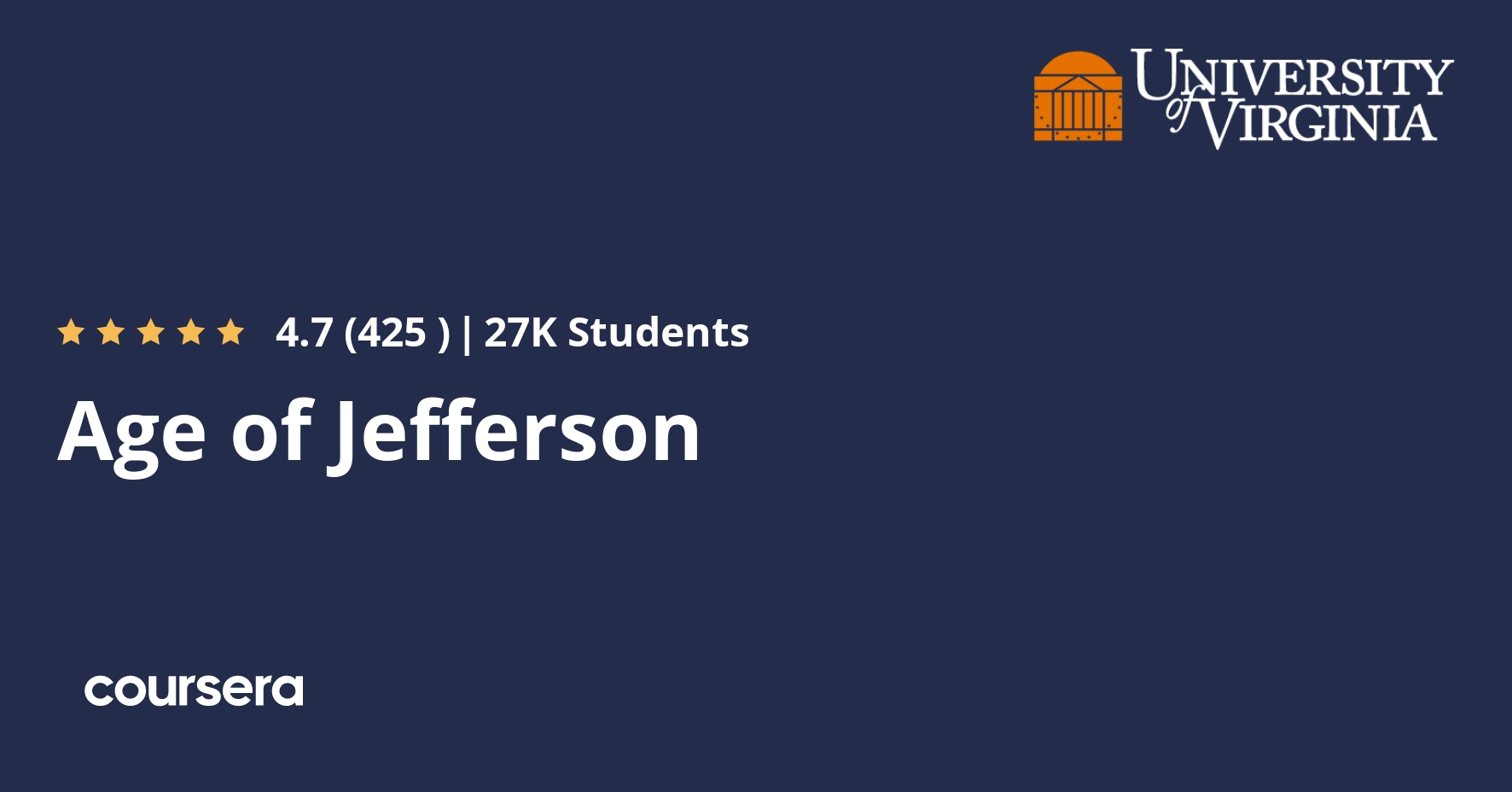Description
This course provides an overview of Thomas Jefferson’s work and perspectives presented by the University of Virginia in partnership with Thomas Jefferson’s Monticello. Together, UVA and Monticello are recognized internationally as a UNESCO World Heritage Site.
What you will learn
Thomas Jefferson, American Icon
Thomas Jefferson is an American icon. He has also been one of the most polarizing and controversial figures in American history. In this introductory module, we’ll explore how Jefferson’s reputation has changed and evolved over the last two centuries. We’ll discover what Jefferson considered to be his most important contribution to the “Age of Enlightenment” in which he was living. We’ll discuss why some people in both the nineteenth and twentieth centuries have viewed Jefferson and his ideas with skepticism or worse while others have embraced Jefferson. Overall, learning about how people from many different backgrounds and perspectives have interpreted Jefferson throughout history will help us understand why it’s so important to think critically and honestly about Jefferson’s life and legacy today.
Jefferson’s Declaration of Independence
No document is more closely associated with Jefferson than the Declaration of Independence. Listing it as the first of three achievements on his tombstone, Jefferson clearly believed the Declaration to be of profound importance. Generations of Americans have agreed, constantly quoting its phrases and invoking its ideas. But do we really understand what Jefferson was trying to do when he wrote the Declaration? In this module, we’ll explore the Revolutionary context in which Jefferson lived and worked. We’ll ask why the Declaration takes the form that it does, and also what Jefferson hoped it would accomplish. Surprisingly, the parts of the Declaration that we celebrate most frequently today may not be the ones Jefferson would have understood to be the most important.
Jefferson and Slavery
The man who wrote in the Declaration of Independence that “all men are created equal” was a lifelong slaveowner whose affluence rested on the exploitation of hundreds of African Americans. In this module, we travel to Montalto, the mountain overlooking Jefferson’s home and plantation on Monticello, to try to gain some perspective on this great tension in Jefferson’s life and thought. Our goal will be neither simply to exonerate nor to castigate Jefferson, but rather to understand how he viewed slavery and his relationship to it. Only by confronting and considering this complicated, frustrating, and tragic chapter in American history can we come to a more complete and nuanced understanding of Thomas Jefferson and his legacy. As students attending the University Jefferson founded, it is especially important to engage this topic.
Jefferson and Religion
The role of religion in public life continues to be a topic of debate today in both the United States and around the world. Thomas Jefferson was never happier than when his Bill for Religious Freedom was finally enacted in Virginia in 1786. In this module, we’ll try to understand why Jefferson believed freedom of religion to be so essential to the future of the United States. To do this, we’ll explore the historical context in which Jefferson developed his ideas about the proper relationship between religious denominations and the state. We’ll also investigate Jefferson’s own faith—a subject of much controversy from his own day through the present. Considering Jefferson’s serious engagement with questions of religion will help us understand the kinds of communities and society he hoped would take hold and flourish in the new nation.






